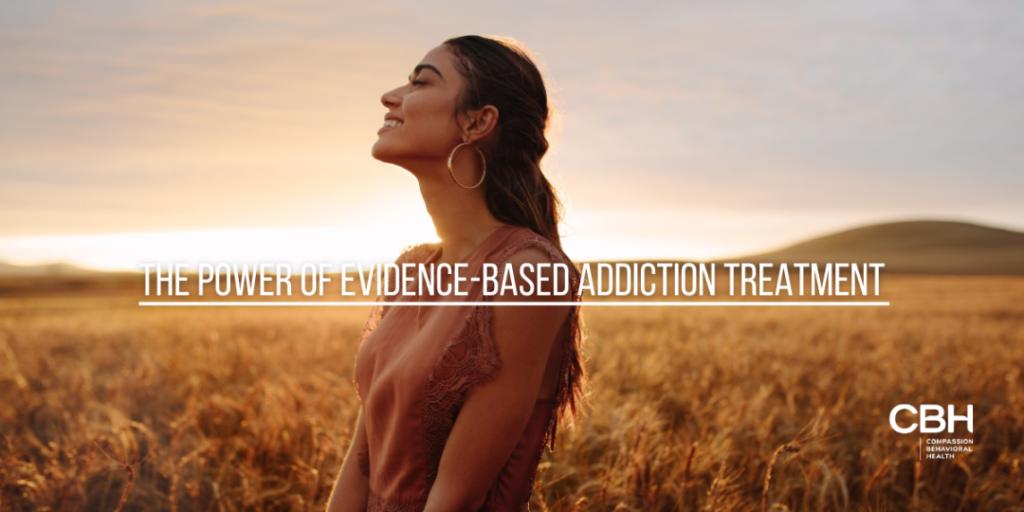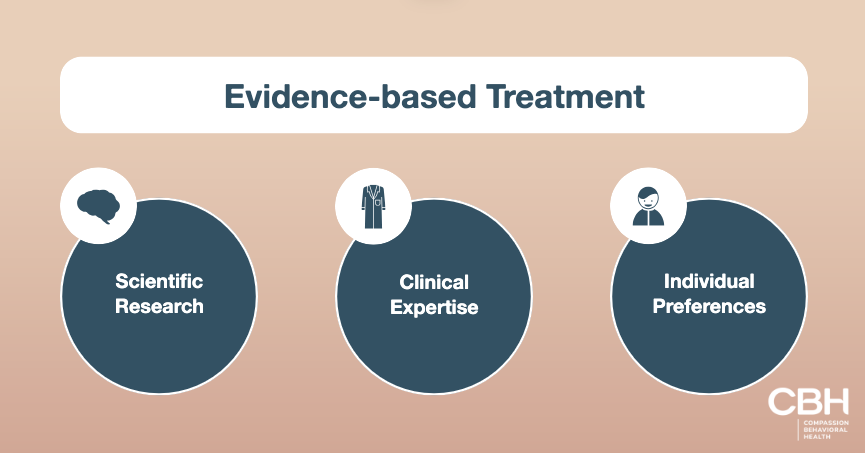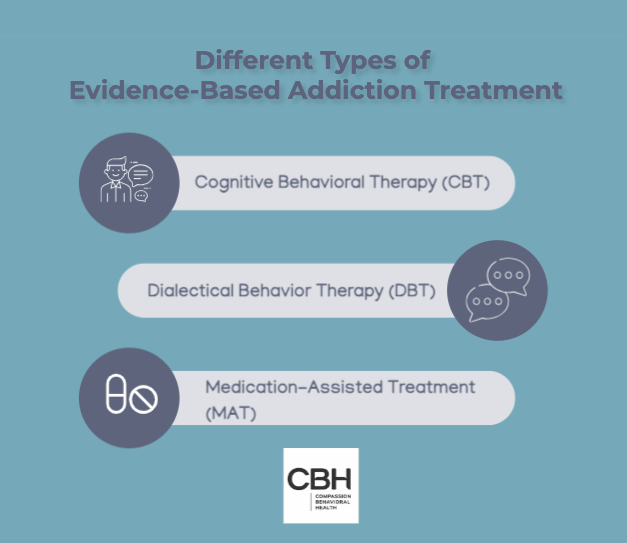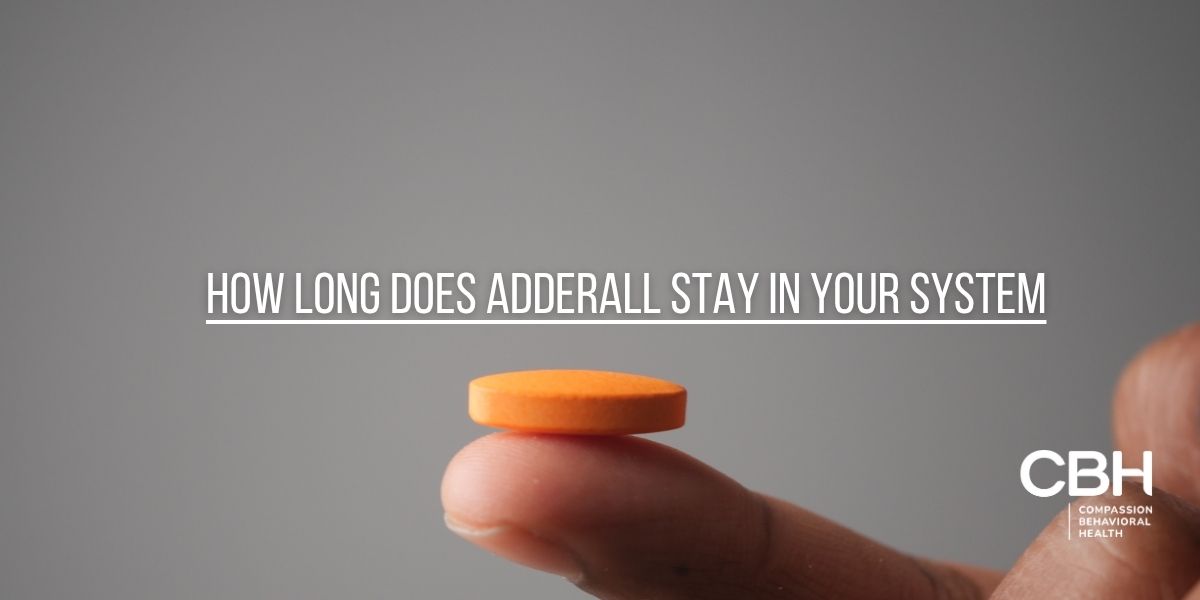In today’s society, addiction is a prevalent issue that affects individuals and their loved ones. When it comes to helping individuals overcome addiction, evidence-based treatment approaches have proven to be a powerful tool. This article will explore the concept of evidence-based addiction treatment, its importance in recovery, different types of evidence-based treatments, challenges and limitations, and the future of this approach. Let’s dive into the world of evidence-based addiction treatment and discover its transformative power.
Understanding Evidence-Based Addiction Treatment
Defining Evidence-Based Treatment
Evidence-based addiction treatment is an approach that combines scientific research, clinical expertise, and individual preferences to provide the most effective and reliable therapies. It involves using treatment methods that have been scientifically tested and proven to yield positive outcomes for individuals struggling with addiction.
When it comes to addiction, finding the right treatment approach can be challenging. However, evidence-based treatment offers a solution by utilizing a comprehensive and well-researched framework. This approach takes into account the unique needs and preferences of each individual, ensuring that the treatment plan is tailored to their specific circumstances.
One of the key benefits of evidence-based treatment is its ability to provide individuals with a sense of confidence and trust in the therapies they are receiving. Knowing that the treatment methods have undergone rigorous scientific testing can alleviate any doubts or uncertainties, allowing individuals to fully commit to their recovery journey.
The Science Behind the Approach
At the core of evidence-based treatment lies rigorous scientific research. These studies examine various treatment techniques, interventions, and medications to determine their effectiveness. By analyzing empirical data, scientists can establish the most reliable and successful treatment methods.
Researchers in the field of addiction treatment are constantly exploring new avenues and refining existing approaches to ensure that individuals receive the best possible care. Through clinical trials and longitudinal studies, they gather data on the effectiveness of different therapies, allowing them to make informed decisions about which treatments to include in evidence-based programs.
Moreover, evidence-based treatment is not a static concept. It evolves as new research emerges, ensuring that individuals have access to the most up-to-date and effective interventions. This commitment to ongoing research and improvement sets evidence-based treatment apart from other approaches, as it prioritizes the well-being and recovery of individuals above all else.
This scientific approach ensures that individuals receive treatments that have undergone thorough testing, reducing the potential for ineffective or harmful approaches. Evidence-based treatment empowers individuals by offering them scientifically proven techniques that increase their chances of successful recovery.
Furthermore, evidence-based treatment is not limited to a single modality. It encompasses a wide range of therapeutic techniques, including cognitive-behavioral therapy, motivational interviewing, and medication-assisted treatment. This diversity allows treatment providers to tailor the approach to each individual, taking into account their unique needs, preferences, and challenges.
By combining scientific research, clinical expertise, and individual preferences, evidence-based treatment provides a comprehensive and personalized approach to addiction recovery. It offers individuals the best chance at achieving long-term sobriety and improving their overall well-being.
The Importance of Evidence-Based Treatment in Addiction Recovery
When it comes to addiction recovery, embracing evidence-based treatment is crucial for individuals seeking a path to recovery. By using proven techniques, professionals can tailor treatment plans to the specific needs of each patient, increasing the likelihood of positive outcomes.
But what exactly is evidence-based treatment? It refers to the integration of the best available research evidence with clinical expertise and patient values. This approach ensures that treatment decisions are not based on personal opinions or beliefs, but rather on solid scientific evidence.
One of the key benefits of evidence-based treatment is that it provides a foundation of support that promotes long-term recovery. By incorporating therapies based on solid scientific evidence, individuals gain the tools they need to address the underlying causes of their addiction, manage cravings, and develop healthy coping mechanisms.
The Role of Evidence-Based Treatment in Successful Recovery
Successful recovery is not just about abstaining from substance use; it’s about creating a life that is fulfilling and meaningful. Evidence-based treatment plays a crucial role in this process by helping individuals address the root causes of their addiction and develop the necessary skills to navigate life without relying on substances.
One of the key aspects of evidence-based treatment is its focus on individualized care. Each person’s journey to recovery is unique, and what works for one individual may not work for another. By tailoring treatment plans to the specific needs and circumstances of each patient, professionals can maximize the chances of success.
Moreover, evidence-based treatment helps individuals develop a sense of empowerment and self-efficacy. By utilizing interventions that have been proven effective, individuals gain confidence in their ability to overcome addiction and make positive changes in their lives.
The Impact on Long-Term Sobriety
When it comes to addiction recovery, long-term sobriety is the ultimate goal. Evidence-based treatment significantly enhances the chances of achieving and maintaining long-lasting recovery. By employing scientifically supported interventions, individuals can develop resilience, address underlying issues, and build a strong foundation for a fulfilling life free from addiction.
One of the reasons evidence-based treatment is so effective in promoting long-term sobriety is that it addresses the underlying causes of addiction. Substance abuse is often a symptom of deeper issues such as trauma, mental health disorders, or unresolved emotional pain. By targeting these underlying issues, evidence-based treatment helps individuals heal from the inside out.
Furthermore, evidence-based treatment equips individuals with the necessary skills to navigate the challenges of everyday life without resorting to substance use. Through therapies such as cognitive-behavioral therapy (CBT) and motivational interviewing (MI), individuals learn how to identify and change negative thought patterns, develop healthy coping mechanisms, and make positive lifestyle changes.
In conclusion, evidence-based treatment is a vital component of addiction recovery. By utilizing scientifically supported interventions, professionals can provide individuals with the tools they need to address the root causes of their addiction, manage cravings, and build a strong foundation for long-term sobriety. It is through evidence-based treatment that individuals can truly transform their lives and create a future free from the grip of addiction.
Different Types of Evidence-Based Addiction Treatments
Cognitive Behavioral Therapy (CBT)
Cognitive Behavioral Therapy (CBT) is a widely recognized and effective evidence-based treatment for addiction. It focuses on identifying and changing negative thought patterns and behaviors associated with addiction. Through counseling and practical exercises, individuals learn to challenge distorted thinking and replace it with healthier attitudes and behaviors.
Dialectical Behavior Therapy (DBT)
Dialectical Behavior Therapy (DBT) is another evidence-based treatment that has proven effective, particularly for individuals struggling with emotional dysregulation. DBT combines elements of individual therapy, group skills training, and phone coaching to help individuals manage intense emotions, build relationships, and develop strategies for coping with stressful situations.
Medication-Assisted Treatment (MAT)
Medication-Assisted Treatment (MAT) involves the use of medications alongside therapy to treat addiction. Medications such as methadone, buprenorphine, and naltrexone are commonly used to help diminish withdrawal symptoms, reduce cravings, and support long-term recovery. When combined with counseling, MAT can be an effective approach for individuals seeking recovery from opioid or alcohol addiction.
Challenges and Limitations of Evidence-Based Addiction Treatment
Accessibility and Cost Issues
Despite its effectiveness, evidence-based treatment may face barriers related to accessibility and cost. Not all individuals have access to treatment centers offering evidence-based therapies, and the cost of these treatments can be a significant obstacle for some individuals. Addressing these challenges is vital to ensure that evidence-based treatment is available to those who need it.
Individual Differences and Treatment Effectiveness
While evidence-based treatments provide proven methods, it is important to acknowledge that individual differences can influence their effectiveness. What works well for one person may not work for another. To overcome this limitation, treatment providers should consider individual needs, preferences, and circumstances when tailoring evidence-based treatments.
The Future of Evidence-Based Addiction Treatment
Emerging Trends in Evidence-Based Treatment
The field of addiction treatment is continually evolving. New research and advancements bring forth emerging trends in evidence-based treatment. These trends include the integration of innovative therapeutic approaches like mindfulness-based interventions, neurofeedback, and virtual reality, as well as the incorporation of holistic wellness practices such as exercise, nutrition, and art therapy.
The Role of Technology in Advancing Treatment Methods
Technology plays a significant role in advancing evidence-based addiction treatment. Virtual therapy have made treatment more accessible to individuals who may have limited access to in-person care. Additionally, digital tools, smartphone applications, and online recovery communities provide ongoing support, resources, and accountability for individuals in recovery.
In conclusion, evidence-based addiction treatment offers a powerful and effective way to address addiction and support long-term recovery. By using scientifically proven methods, treatment providers can tailor therapy to address individual needs and empower individuals on their path to sobriety. While challenges and limitations exist, ongoing advancements and a patient-centered approach ensure that evidence-based treatment continues to evolve and improve, making a positive impact on the lives of those affected by addiction.
Evidence-based Addiction Treatment at CBH
At Compassion Behavioral Health, our approach to evidence-based addiction treatment aligns with our core values of empathy and professionalism. We integrate the latest scientific findings with compassionate care to deliver personalized treatment plans that cater to the unique needs of each individual. Our team of skilled professionals utilizes a blend of proven therapies, such as Cognitive Behavioral Therapy (CBT), Dialectical Behavior Therapy (DBT), and Medication-Assisted Treatment (MAT), ensuring a holistic approach to recovery.
Our commitment is to transform lives through evidence-based practices, delivered with the utmost compassion and expertise. We believe in empowering our clients, offering them not just a path to recovery but a journey toward a fulfilling and addiction-free life. Call us today to start your journey.








